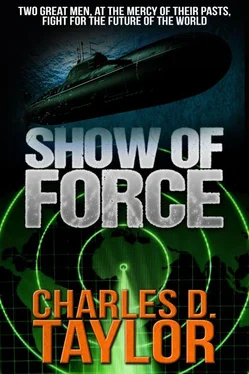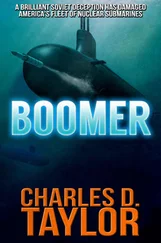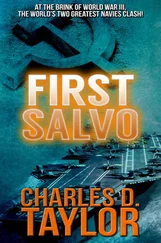No one ever passed through his office without having it pointed out. Gorenko expected no less of his sailors forty years later.
By August, they had lost control of the Azov Sea to the Germans, and Gorenko led his small band of survivors toward Stalingrad, where the final stand would be made. If the Germans took Stalin's city and captured the oil fields, then the war was lost. Word of mouth preceded him as he led his men up the Don, skirmishing with German elements as they made their way to the next front. They did not go hungry, for the peasants brought what little they had to the sailors, whose commander was already a myth.
He lost more men at Kalach when they successfully destroyed a German fuel depot, the primary one the Panzer divisions depended on in the struggle for Stalingrad. Then, they captured a freight train and ran it along the canal to the great city. They arrived during the hardest month, October, the month in which General Paulus knew he must capture the city or face another cruel winter. The defenses had already pulled within the city limits and reinforcements from the Volga's eastern bank found themselves instantly in the front lines. The heroes were greeted for five minutes and then immediately sent to General Gorishnyi's 62nd Army, a unit already famous in its own right. Perhaps Chuikov had realized that the two heroic units should be charged with defending that part of the city — that protected the supply paths over the Volga behind them. At any rate, the remainder of those sailors who had left their ships to defend Odessa, Sebastapol, and now Stalingrad would never again see the Black Sea. They died defending Mamai Hill, and a Central Railroad Station that was already unrecognizable when they got there.
There was a sharp knocking at his door. "Yes." His aide entered, saluting as he stepped inside. "A report from Admiral Kupinsky, sir."
Gorenko nodded, not answering, as was his habit. "Two aircraft were sent to harass the Americans. They fired missiles from long range making one hit on a cruiser. Little damage reported. One of the Rigas was brought down by a low-level missile we were unaware of. The remaining aircraft successfully evaded the others."
"Is there any sign of Nimitz yet, or any of her screening or supply ships'?"
"Nothing, Admiral."
He pondered for a moment, then looked up to the aide. "Message to Admiral Kupinsky — continue harrassment. Sacrifice if necessary to determine any other new weapon systems."
"At once, Admiral." He wheeled and left, shutting the door quietly behind him and leaving Gorenko to his thoughts again.
Gorenko rose from behind his desk and moved over to the windows, looking into the courtyard below. The snow had stopped, and there were already many footprints through the light dusting. Soon, flakes would again drift down, erasing those prints and making room for new wanderers, though there were few in this section of the Kremlin. A brief flash of midday sun glanced off one of the domes on the Cathedral of the Archangel. He turned and looked directly at the photo.
The smells came back to him again, the gut-wrenching odor of death that hung over the city no matter where you were, and the calming blend of black bread and cabbage and makhorka tobacco in the basement command post. They had lost Mamai Hill once again and the General had been forced to move his headquarters. A fuel-storage depot had been bombed and burning oil was running into the basements. It was quiet outside because the Germans did not usually attack during the day. Gorenko was eating a hasty meal with Kupinsky, the young sergeant who had just been made lieutenant to replace the last officer in his unit who had been killed that morning.
Gorenko decided to stay close to this man, for his troops still had a full supply of ammunition, especially grenades, which slowed any attack. And Kupinsky and his men were brave and experienced. They had been there since early September, always near Mamai Hill. Young Georgi Kupinsky had liked the Navy man, and they found that the defenders of Sebastopol and the defenders of Mamai Hill fought well together.
Their newly designated basement headquarters were by the Stalingrad Tractor Plant. They would soon try to take back the Hill.
"Tell me, Commander," inquired the young man, as he lit one of the foul-smelling cigarettes, "now that they have allowed us to finish a meal, do you think they will attack soon? Or do you think they are already aware of the counteroffensive?" It was November 18, and General Chuikov had planned a massive counterattack to take place simultaneously on each of the fronts around the city.
"It is hard to say, Georgi. And, please… please call me Pietr. We are friends, now." He paused to light his own cigarette. "I don't think they like the daylight any more than they have before. They like to attack at night when we can't see them as well." He stood up, motioning to the other. "Let's check with our men and see for ourselves if the Nazis seem to be curious."
As they came up onto the street, Gorenko looked for the outline of the sun through the dust and smoke that had changed it to a dull, reddish ball. It was either night and black out or a little lighter as the sun tried to penetrate the thick blanket of smoke. Few buildings existed as more than piles of masonry, an occasional wall or chimney piercing the air. Chimneys were hard to hit, so there were more of them than anything else to identify which part of town one occupied.
The rubble served as both a hindrance to movement and a boon to the foot soldiers for its excellent protection from rifle fire. The best part for the Russians was the fact that the German destruction of the city was so complete that their tanks were unable to maneuver through much of the area they wanted to capture. German soldiers had to advance without the mechanized divisions that had led them in their sweep across Russia. When they had elected to reduce the city to mortar and ashes they had not realized that they were also halting their own most effective weapon. This gave the Russians the opportunity to pound the German positions with their artillery twenty-four hours a day, firing with accuracy from the opposite bank of the Volga.
And then, Gorenko remembered, there were the katyushas, those immense mortars, one of the few items in the Russian arsenal that genuinely frightened the Germans. Since they were fired from a distance, there was no warning of the impending explosion until the first shell began its descent. The great whooshing sound then announced its imminent arrival, too Sate for the Germans to avoid the tremendous explosions. The Russians used them effectively against troop concentrations, knowing the psychological value was worth almost as much as its destructiveness. Its intention was antipersonnel and its effectiveness justified its use, once reducing an entire advancing battalion to bits and pieces. Perhaps, he thought to himself, that's what kept us going in those days — we knew they had no katys. They kept close to the remaining walls as they found their men around the next corner. Gorenko stopped to talk with one of his squad leaders for a moment, while Kupinsky moved among his own larger group.
"Georgi, has there been any movement out there?" He gestured in the general direction of the German positions.
"No, not yet. One of my scouts has just been out and has seen some ammunition carts hauling in more men. He thinks they may just be probing in the next couple of streets. They must know something's in the air."
"It's not like them to be so still during the day. Let's get ourselves a prisoner or two for Gorishnyi. He doesn't want them pulling back far enough to use aircraft." General Chuikov had ordered that his men would maintain close combat positions with the Germans, just a "grenade's-throw distance at most," so that their enemy could not utilize their air superiority. Every time the Germans moved forward they met stiff resistance, and whenever they withdrew, the 62nd Army was at their heels. Attacking was thought to be the simplest way to stay alive.
Читать дальше












